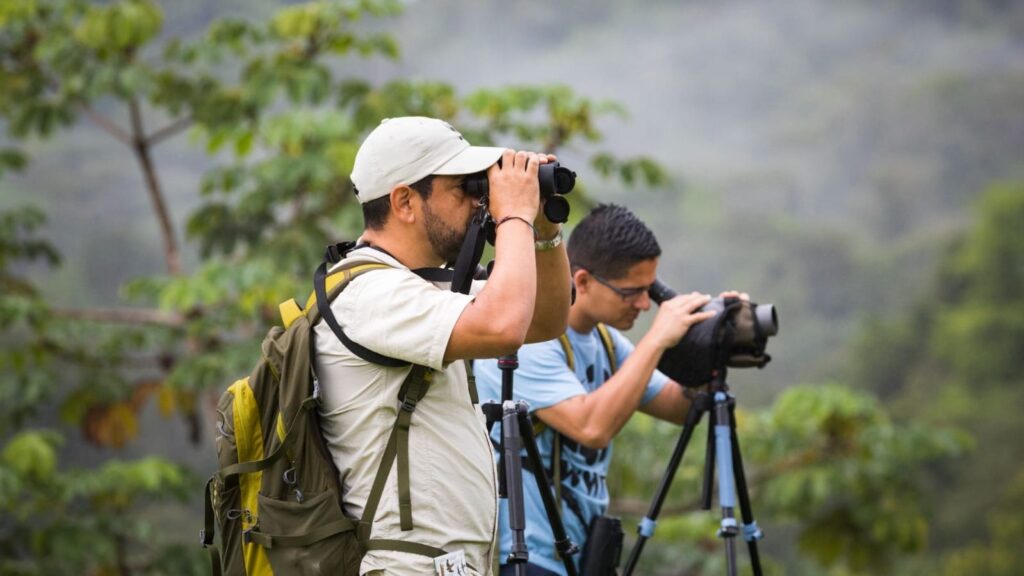
Outdoor hobbies such as hiking and bird watching offer a gateway to reconnecting with the natural world. By immersing yourself in nature, you can enhance your physical health, mental well-being, and spiritual connection. These activities cultivate mindfulness, foster environmental awareness, and provide a sense of peace that is often missing in the hustle of modern life.
1. Hiking: A Journey to Self and Nature
Hiking is one of the most accessible outdoor activities that offers countless benefits. When you hike, you tread paths through forests, mountains, and meadows, exposing yourself to fresh air and awe-inspiring landscapes.
Physical Benefits
Hiking is an excellent form of exercise. It improves cardiovascular health, strengthens muscles, and enhances endurance. Walking on uneven terrains challenges your balance and coordination, giving your body a wholesome workout.
Mental Clarity
The rhythmic motion of walking in a natural setting clears your mind, reduces stress, and alleviates anxiety. Surrounded by trees, streams, and wildlife, you begin to notice the small details of life that often go unnoticed. These moments of clarity can inspire creative thoughts and solutions to problems you’ve been wrestling with.
Spiritual Connection
Nature has a way of grounding us. Hiking provides a chance to reflect on life’s bigger picture, helping you appreciate the simple joys and the interconnectedness of all living beings.
2. Bird Watching: The Art of Observation
Bird watching, often called birding, is another delightful way to connect with nature. Unlike hiking, which can be physically demanding, birding is more about patience and observation. Armed with a pair of binoculars and a field guide, you can explore a world of feathered creatures with unique songs and behaviors.
Learning and Curiosity
Bird watching requires attention to detail—the shape of a bird’s beak, the pattern on its wings, or the melody of its call. This hobby sharpens your observational skills and fosters a deep curiosity about the natural world.
Emotional Fulfillment
Spotting a rare bird or witnessing an extraordinary behavior can bring immense joy. It’s a reminder of nature’s wonders and the importance of preserving habitats for these beautiful creatures.
Building Community
Bird watchers often form tight-knit communities, sharing tips and experiences. These connections can enrich your life and introduce you to people who share your passion for nature.
3. Benefits of Reconnecting with Nature
Whether you’re hiking up a mountain or watching a hummingbird hover near a flower, outdoor hobbies have profound benefits.
Boosting Physical Health
Engaging in outdoor activities increases your vitamin D levels, strengthens your immune system, and promotes better sleep. Even light activities like birding encourage movement and help combat sedentary lifestyles.
Enhancing Mental Well-being
Nature is a natural healer. Studies show that spending time outdoors reduces cortisol levels (the stress hormone) and boosts serotonin, the feel-good chemical in your brain. It’s no wonder that these hobbies are often recommended for people dealing with anxiety, depression, or burnout.
Encouraging Mindfulness
Hiking and bird watching demand focus and attention. Whether it’s navigating a trail or identifying a bird species, these activities pull you into the present moment. This mindfulness helps you break free from the constant buzz of thoughts and distractions.
4. Developing a Deeper Appreciation for the Environment
When you spend time in nature, you’re more likely to appreciate its beauty and fragility. Seeing a forest’s ecosystem or the migration of birds can awaken a sense of responsibility to protect these wonders for future generations.
Promoting Sustainable Practices
Hobbies like hiking and bird watching often lead to a greater awareness of environmental issues. Many enthusiasts become advocates for conservation, supporting efforts to protect habitats and wildlife.
Teaching Patience and Gratitude
Nature operates on its own timeline. Waiting for a bird to emerge or reaching the summit of a hike teaches patience. These hobbies instill gratitude for the small moments, like the rustling of leaves or the sight of a butterfly.
5. How to Get Started
If you’re new to outdoor hobbies, here are a few tips to help you begin:
- Start Small: Choose easy trails for hiking or begin bird watching in your backyard.
- Equip Yourself: Invest in comfortable shoes for hiking or a good pair of binoculars for birding.
- Learn and Prepare: Research trails, local bird species, or join workshops and groups.
- Be Patient: The joy of these hobbies lies in the journey, not just the destination.
- Respect Nature: Leave no trace, avoid disturbing wildlife, and follow local guidelines.
- 6. Stories from the Wild
- Every outdoor enthusiast has tales of wonder. Whether it’s spotting an eagle in flight or finding an untouched waterfall, these moments stay with you, enriching your life and providing stories to share.
- Q&A Section
- Ques 1: How does hiking improve mental health?
- Ans: Hiking in natural settings reduces stress hormones, improves mood, and provides a meditative experience. It allows you to disconnect from daily stressors and reconnect with yourself and the environment.
- Ques 2: What’s the best time for bird watching?
- Ans: Early mornings are ideal for bird watching as birds are most active during this time. Dawn provides better lighting and a quieter environment, making it easier to spot and hear birds.
- Ques 3: Do I need expensive gear to start hiking or bird watching?
- Ans: Not at all. Comfortable clothing, sturdy shoes, and basic supplies like water and snacks are sufficient for hiking. For bird watching, a simple pair of binoculars and a bird guidebook are enough to begin.
- Ques 4: Can children participate in these hobbies?
- Ans: Absolutely! These activities are family-friendly and can instill a love for nature in children. They also provide an excellent opportunity for bonding and learning together.
- Ques 5: How do these hobbies contribute to environmental conservation?
- Ans: Participants often develop a stronger commitment to protecting nature, whether by advocating for conservation, participating in clean-ups, or supporting sustainable practices.